Ajit Balakrishnan
Ajit Balakrishnan watches India's entry for the Oscars, The Good Road.
A yuppie Bombay couple and their seven-year old son set out in their SUV, across the barren salt marshes of the Rann of Kutch.
He, David Shroff, is in his sleeveless olive bomber jacket, American baseball cap and blue jeans; she, Kiran, wears a designer kurta over her cut-off blue jeans; and the child Aditya is in his T-shirt, blue jeans and sneakers.
The road that they are on is one of India's modern multi-lane highways with the white divider lines looking as if they had been painted on that morning.
Where are they going to and why is it taking so long asks the kid Aditya. Athangasa, and it's only a few hours away, says Dad.
Why do they have to drive, asks the bored kid, why can't they just take a plane like the rest of his friends do whenever they go anywhere mutters the kid as he goes back to playing with his toys.
.
Why you must see The Good Road
Image: Keval Katrodia with Ajay Gehi and Sonali KulkarniDavid, the dad, is feeling macho at the wheel of his SUV. When two goods trucks approach each other ahead of him, he makes a daring maneuver and darts through them irritating his wife.
"Your driving always makes me tense!" she says
"When have I ever had an accident?"
She leans back on her seat with an air of resignation
"Can't we drive in peace?" she says
"Why do the two of you always bicker?" asks Aditya
They are driving through the Rann of Kutch, that vast 8,000 square kilometers of salt encrusted land that the Kutch district of Gujarat shares with the Sindh province of Pakistan, where daytime temperatures in summers can be as high as 49 degrees C and winter temperatures can go below 0 degrees C and where the horizon can stretch into nothingness for a hundred miles in every direction without sight of a man or a tree.
.
Why you must see The Good Road
Image: Keval Katrodia in The Good RoadThere are others on this good road. Pappu, a laconic truck driver and his 'cleaner' Shaukat, a teenage boy are making their way in a 6-tonne truck overloaded with marble tiles to 10-tonnes.
Pappu drives all day long and all days of the week for twenty-five days at a time. He misses his family and wishes he did not have to stay away from them for such long stretches.
But Pappu has a scheme that he is working on to get out of this grind. He is going to stage an accident where his overloaded truck will crash, he will 'die' and collect insurance.
This is a scheme thought up by a dabha owner Jadeja and Pappu has every reason to believe in Jadeja's scheme -- the dhabha owner's name, Jadeja, implies that he is a descendant of the clan of Jadejas who have ruled over this part of Gujarat for centuries even though this particular Jadeja's fortunes have declined to a point that all he does is preside over this dabha and switch at a moment's notice from chanting praises to the gods Brahma and Vishnu to plotting insurance fraud schemes.
The road may be state-of-the-art, but its length is punctuated by traditional dhabhas, basic diners, where the truck drivers stop for camaraderie, food, cigarettes and cheap sex from the nearby brothel.
The harshness of the environment of the Kutch desert that the film's director evokes contributes to the tension, like the US-Mexican border desert setting does in the novels of Cormac McCarthy and films made from them like No Country for Old Men.
.
Why you must see The Good Road
Image: Keval Katrodia and Sonali Kulkarni in The Good RoadThe action picks up when our yuppie couple in their SUV arrive at the Jadeja dhabha.
David sneaks out to get a cigarette, hoping that his dozing wife does not catch him.
Aditya plaintively asks for water, but not getting a response from his mother, gets off the SUV, goes looking for water, is distracted by a pup and wanders away far from the SUV.
Dad David finishes up, gets onto his SUV and drives off.
They do not notice that their son is missing from the SUV till some hours and dozens of kilometres later.
David Shroff reports his missing son to the local police and pillion rides a police scooter re-tracing the road they came from in search of his son.
The headstrong mother, Kiran, drives off on her own in the SUV across the barren Kutch desert, something that even the Indian Army hesitates to do because their trucks and jeeps can get stuck in the mud, even in the dry summer season.
Jadeja, meanwhile, notices the wandering Aditya and entrusts him to a reluctant Pappu to be dropped off at the next dhabha.
.
Why you must see The Good Road
Image: A scene from The Good RoadAll that stands between the Shroffs and disaster are the inhabitants of this remote area of Gujarat -- the wandering gypsies of the desert, the truck driver Pappu and his cleaner boy Shaukat, the itinerant brothel owner and his prostitutes, all stoically marching through their meager lives in a way best exemplified by the song the young brothel inmates sing as they go about doing their daily chores:
Spin the grindstone, spin the grindstone
If the grain is too fine the wind will blow it away
If the grain is too coarse, no one will eat it
The Good Road (92 minutes) is written and directed by first-timer Gyan Correa, the delectable camera work is by Amitabha Singh (Khosla Ka Ghosla and Chillar Party), and the exquisite sound is by Resul Pookutty (who won the Academy Award for Best Sound Mixing for Slumdog Millionaire). The film is produced by the National Film Development Corporation.

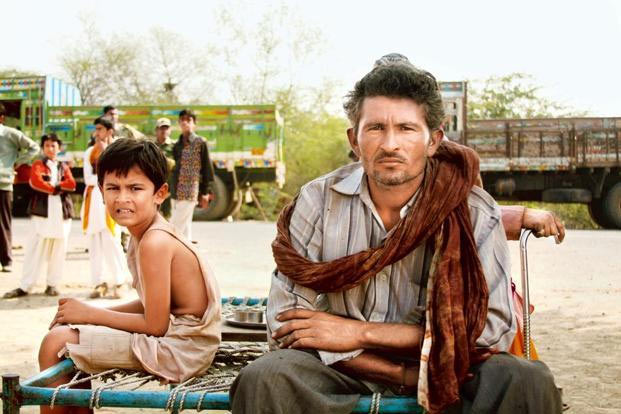
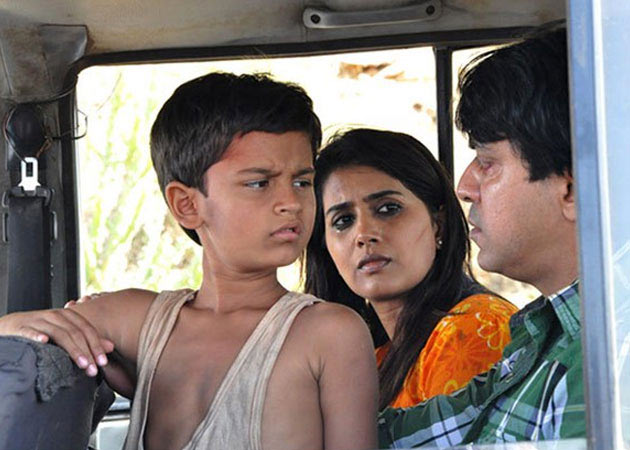
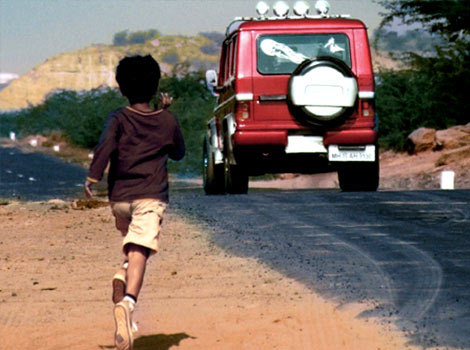
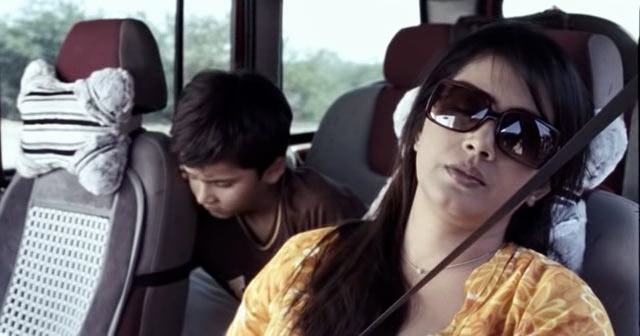
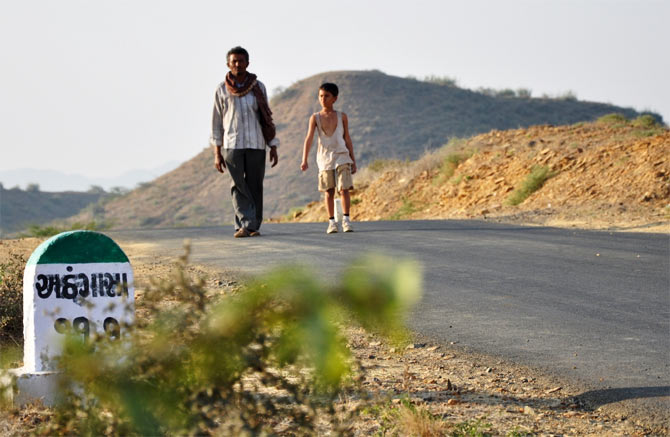
Comment
article